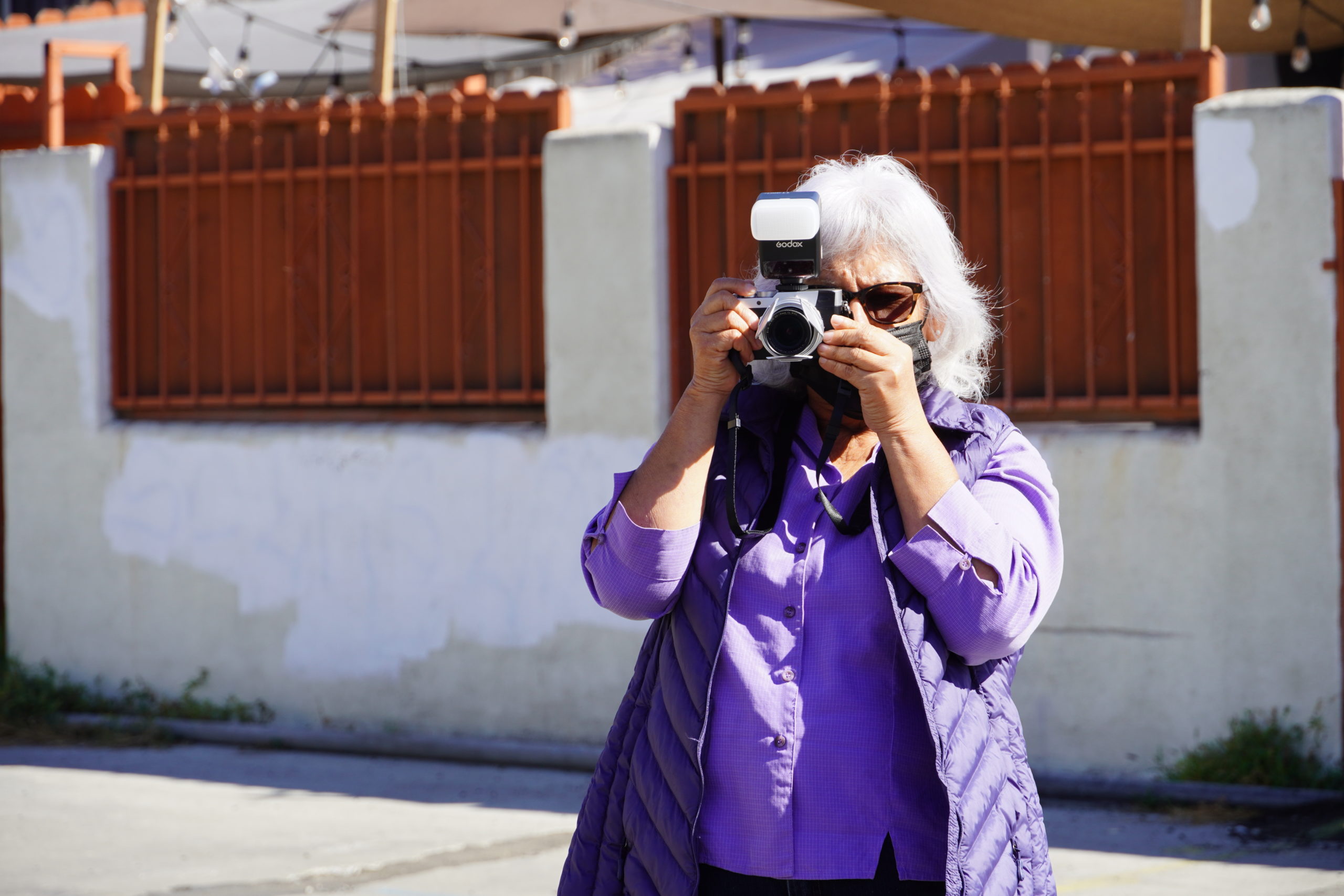Annual Festival Explores Courage and Progress Through Documentary Films
Museum of Photographic Arts Presents Human Rights Watch Film Festival 2017
>SAN DIEGO – The annual Human Rights Watch Film Festival returns to the Museum of Photographic Arts with six documentary films from Feb. 2 – 5, 2017.
This year’s lineup explores individuals and groups exhibiting courageous resilience, and celebrates the push for progress in protecting human rights. Topics include the critical importance of free and independent media, the fight for racial equality and women’s rights, the need for policy reform for juveniles facing life sentences, the realities facing refugees who are fleeing from the war in Syria, and ways people can support veterans.
“We look forward to providing a setting for much-needed debate and community building in San Diego around critical issues facing the U.S. today,” said Jennifer Nedbalsky, Associate Director of Audience Engagement at the Human Rights Watch Film Festival. “The Human Rights Watch Film Festival is a place to engage in conversation with our friends, neighbors, and those we disagree with.”
Hosted in MOPA’s Joan and Irwin Jacobs Theater for the seventh year, a question-and-answer session will follow each film, featuring filmmakers, film subjects, local leaders, human rights experts and audience participation.
The opening night screening, What Tomorrow Brings, will also close the festival with a special Title I screening on Monday, Feb. 6. Every year, students from Title I schools in San Diego are invited to watch a festival film free of charge at MOPA and to participate in a discussion with panelists.
“We offer a free screening to Title I schools because we know students at those schools have limited access to seeing powerful films like those featured in the Human Rights Watch Film Festival,” MOPA Director of Innovation Joaquin Oritz said. “We know the content of these films is something they should have exposure to, and this is our way of providing that opportunity with no cost to the schools.”
The Academy of Our Lady of Peace sponsored this year’s Title I screening. What Tomorrow Brings was selected because it is about the value of education and takes place in Afghanistan where many girls never have the opportunity to attend school.
“We want students in San Diego to see how important education is in other parts of the world, and hopefully have them reflect on access to education within their own lives,” Ortiz said.
FESTIVAL PARTNER: The Academy of Our Lady of Peace
COMMUNITY PARTNERS: ACLU of San Diego & Imperial Counties; Alliance San Diego; International Rescue Committee; NAACP San Diego Youth Council; San Diego Latino Film Festival; San Diego Urban League Young Professionals; San Diego World Affairs Council; Survivors of Torture, International; University of San Diego, Joan B. Kroc School of Peace Studies
TICKETS: Festival passes are available for purchase and cover admission to all six festival films. Festival passes are $25 for MOPA Members, $30 for students, seniors and military service members, and $35 for the public. Single-screening tickets are $6 for MOPA Members, $8 for students, seniors and military service members, and $10 for the public. Passes and single-screening tickets are available online and at the door. For more information or to purchase tickets, please visit MOPA.org/hrwff.
OPENING NIGHT SCREENING AND RECEPTION: Thursday, February 2, 6 p.m.
What Tomorrow Brings
What Tomorrow Brings is the story of the first all-girls school in a remote Afghan village. While the girls learn to read and write, education goes far beyond the classroom and teaches the students that girls also count.
Opening reception begins at 6 p.m., followed by the film screening at 7 p.m. and Q&A with the director, Beth Murphy, and Razia Jan, the film subject and founder of the Zabuli Education Center and Razia’s Ray of Hope Foundation. Discussion moderated by Jo Becker, advocacy director, Children’s Rights Division at Human Rights Watch
Friday, February 3, 7 p.m.
They Call Us Monsters
The Compound: where Los Angeles houses its most violent juvenile offenders. To their advocates, they’re kids. To the system, they’re adults and to their victims they’re monsters.
Followed by Q&A with producer and film subject Gabriel Cowan, and Elizabeth Calvin, senior advocate of the Children’s Rights Division at Human Rights Watch
Saturday, February 4, 3 p.m.
Almost Sunrise
Two young veterans, haunted by their combat experiences, take a 2,700-mile trek on foot across America seeking redemption, acceptance and a way to close the moral chasm opened by war.
Followed by a Q&A with film producer, Marty Syjuco, and film subject, Emmet Cullen
Saturday, February 4, 7 p.m.
I Am Not Your Negro
Working from the text of James Baldwin’s unfinished final novel, the director, Raoul Peck, creates a stunning meditation on what it means to be Black in America, and reflects on the legacy of racial violence that still permeates the country.
Followed by a Q&A
Sunday, February 5, 3 p.m.
The Crossing
A first-hand account of the perilous journey made by a group of Syrian refugees, The Crossing shows the lengths to which people go to find safety and forge their own destiny.
Followed by a Q&A via Skype with filmmaker, George Kurian
Sunday, February 5, 7 p.m.
All Governments Lie
The filmmaker and TV news veteran Fred Peabody explores the life and legacy of the maverick American journalist I.F. Stone and examines how independent journalists today are still changing the face of journalism – providing investigative, adversarial alternatives to mainstream corporate news outlets.
Followed by a Q&A with filmmaker Fred Peabody
-30-
Press Opportunities: To request high-resolution images, screeners, additional information or to schedule an interview, please contact MOPA Marketing & Communications Manager Raya Greenbaum at 619.238.7559 x203 or via email (greenbaum@MOPA.org).
The Museum of Photographic Arts is a center for visual learning located in San Diego’s Balboa Park. Its mission is to “inspire, educate and engage the broadest possible audience through the presentation, collection, and preservation of photography, film and video.” MOPA offers Pay What You Wish admission six days a week. As a 501(c)(3) organization, MOPA is generously supported by members, individuals, corporations, foundations and government agencies.
About Human Rights Watch: Human Rights Watch defends and protects human rights in more than 90 countries around the world. By focusing international attention where human rights are violated, we give voice to the oppressed and hold oppressors accountable for their crimes. Our rigorous, objective investigations and strategic, targeted advocacy build intense pressure for action and raise the cost of human rights abuse. For nearly 40 years, Human Rights Watch has worked tenaciously to lay the legal and moral groundwork for deep-rooted change and has fought to bring greater justice and security to people around the world. To learn more about our work or to make a donation, visit www.hrw.org.
Press Inquiries
Press Coordinator

